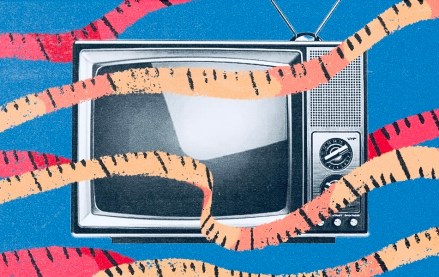
This was an exciting year to be covering the media. The old model has come completely undone, and nowhere was that better exemplified than when Amazon CEO Jeff Bezos purchased the Washington Post, one of the most important newspapers in the history of this country, for a mere $250 million.
The digital revolution that has rocked our industry to its very foundations is also providing unprecedented opportunities to evolve in new ways — some less savory than others. Upworthy has joined the ranks of BuzzFeed and Business Insider as fast-growing new players. Another rich digital executive, Pierre Omidyar, is bankrolling a serious journalistic enterprise with the help of Glenn Greenwald, who broke the biggest story of the year. Everyone ramped up their mobile game, or at least payed mobile serious lip service. Individuals from Peter King to Nate Silver to Brian Stelter have demonstrated repeatedly the power — and limits — of the personal brand.
The mainstream media loves covering itself. Too often, though, it reads like high school gossip: who’s up and who’s down? The question not enough people ask is: how is all of this getting paid for? From shady ad gambits and dodgy clickbait tactics to the power of porn and Politico, here then are five of our favorite Digiday media stories of the 2013.
1. Is This the Worst Page on the Internet?
This is possibly the worst page on the Internet, a perfect case study of a system gone off the rails. CafeMom created the page, which carries a ho-hum piece on “Glee,” following the death of show star Cory Monteith, specifically for content-distribution network Outbrain, which displayed it on sites like TMZ.com and SI.com. This page contains over 90 ad units, mostly “content marketing” ads from networks Taboola, Adblade, Zergnet. There are also four standard display ads served by CafeMom. The user experience is, well, not optimal.
2. Confessions of a Fake Traffic Buyer
Online advertising has a fraud problem. Millions of ad impressions are being served to bots and non-human traffic, and ad tech companies are doing little to stop it. Digiday spoke with a former publishing executive who said he knowingly purchased fraudulent traffic and sold it on to advertisers in the past year. In fact, it was his former company’s business model. Here’s what he said
3. Imagining a World Without Cookies
Any move to restrict cookies in any way, whether it’s through browser defaults or regulations, is painted as a mortal threat to the ad industry, even to society. And yet it’s hard to believe that a $100 billion global industry would simply fold up its tent and move onto something else if such restrictions come into place. The more likely result would be a period of turmoil, followed by adaption. There would be winners and losers.
4. How Porn Helps Fuel Digital Media
The Web is, at its heart, a data game. And popularity means data. Publishers, for instance, use porn-related keywords to drive traffic to their sites. Some depend on adult keywords as the biggest sources of their search traffic. Advertisers, too, use porn. Web data brokers frequently collect information on porn sites that is then repackaged in aggregate — and wiped free of any hint of its origins — for ad targeting.
Ad position: web_incontent_pos1
5. For Politico “High Traffic is Overrated”
In September Politico owner Robert Allbritton bought Capital New York, a New York-focused digital-only publication. Jim VandeHei, a Politico founding editor and former reporter at the Washington Post, has been tasked to serve as the new president of Capital New York. Digiday spoke with VandeHei about how Politico plans to replicate its model in New York City, why the timing worked, what types of advertisers it will target, and more.
More in Media

NewFronts Briefing: Samsung, Condé Nast, Roku focus presentations on new ad formats and category-specific inventory
Day two of IAB’s NewFronts featured presentations from Samsung, Condé Nast and Roku, highlighting new partnerships, ad formats and inventory, as well as new AI capabilities.

The Athletic to raise ad prices as it paces to hit 3 million newsletter subscribers
The New York Times’ sports site The Athletic is about to hit 3 million total newsletter subscribers. It plans to raise ad prices as as a result of this nearly 20% year over year increase.

NewFronts Briefing: Google, Vizio and news publishers pitch marketers with new ad offerings and range of content categories
Day one of the 2024 IAB NewFronts featured presentations from Google and Vizio, as well as a spotlight on news publishers.
Ad position: web_bfu